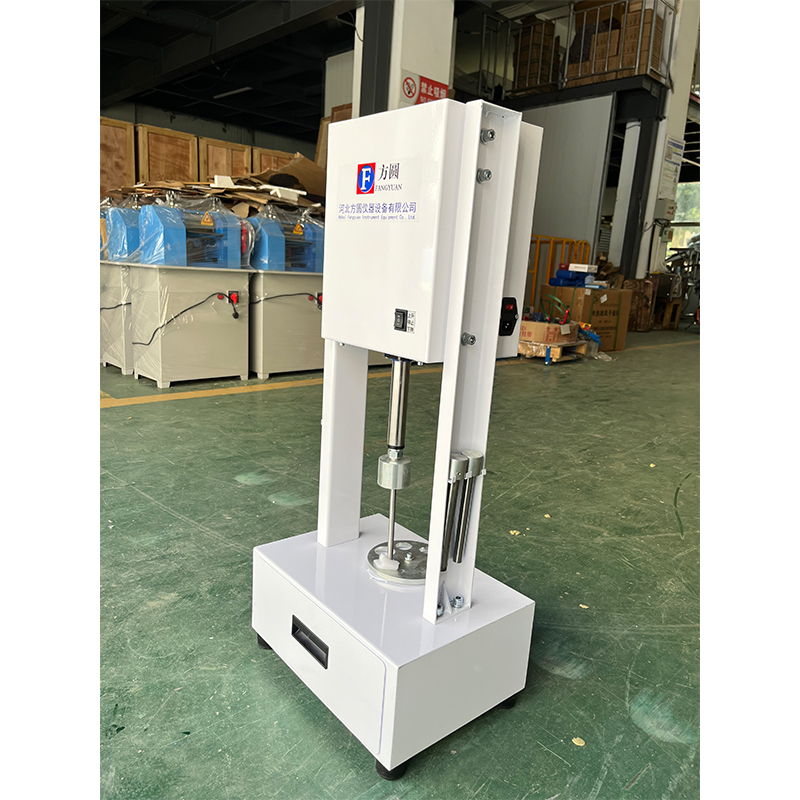conductor resistance test machine
Understanding Conductor Resistance Test Machines
In the world of electrical engineering, ensuring the integrity and performance of conductors is crucial. Conductors form the backbone of electrical installations, facilitating the flow of electricity from one point to another. However, the efficiency of a conductor can be compromised due to factors such as material defects, corrosion, or mechanical damage. This is where conductor resistance test machines come into play. These specialized devices are essential for assessing the resistance of electrical conductors, ensuring optimal performance and safety in electrical systems.
What is a Conductor Resistance Test Machine?
A conductor resistance test machine is a specialized device used to measure the electrical resistance of various types of conductors, including copper, aluminum, and composite materials. The resistance of a conductor is a crucial parameter that affects the efficiency of electrical systems. High resistance can lead to power losses, overheating, and ultimately, operational failure. Therefore, regular testing of conductor resistance is vital for maintenance and safety assessments.
How Does It Work?
The operation of a conductor resistance test machine is relatively straightforward. The device typically uses a method known as the four-terminal test, which improves accuracy by eliminating the effects of lead resistance. This involves connecting the test current through the conductor using one pair of terminals while measuring the voltage across the conductor using another set of terminals. By applying Ohm’s Law (R = V/I), the resistance can be calculated accurately.
Modern machines often incorporate advanced features such as automatic initiation of tests, digital displays for easier reading, and data logging capabilities for monitoring trends over time. Some high-end models can also interface with computers or mobile devices to analyze the data in real-time.
Applications of Conductor Resistance Test Machines
Conductor resistance test machines are widely used across various industries, including
1. Power Generation and Distribution Utilities regularly test conductors in power lines and substations to ensure that they meet regulatory standards and to prevent power losses.
conductor resistance test machine

3. Renewable Energy With the rise of solar and wind energy, testing the resistance of conductors used in these technologies is essential for ensuring their reliability and efficiency.
4. Transportation Railways and trams use conductor resistance test machines to maintain the health of the electrical systems that power locomotives and infrastructure.
5. Telecommunications The integrity of conductors in telecommunication systems is vital for signal quality; hence these machines are also utilized in this sector.
Benefits of Using Conductor Resistance Test Machines
The advantages of employing conductor resistance test machines extend beyond simple resistance measurement
- Safety Regular testing reduces the risk of electrical failures, which can lead to accidents or system downtime.
- Cost-Effectiveness By identifying resistance issues early, organizations can address them before they lead to more severe and costly failures.
- Compliance Many industries are subject to strict regulations concerning electrical safety. Regular testing helps ensure compliance and avoid legal ramifications.
- Performance Optimization Continuous monitoring of conductor resistance can help in fine-tuning systems for optimal performance, leading to improved efficiency and energy savings.
Conclusion
In conclusion, conductor resistance test machines are indispensable tools in the electrical engineering field. They play a vital role in ensuring the safety and efficiency of electrical systems across various industries. As technology advances, these machines are becoming more sophisticated, incorporating features that enhance usability and data analysis. Ultimately, investing in these devices enables organizations to mitigate risks, maintain compliance, and optimize performance, making them essential components in the management of electrical systems. As the demand for reliable and efficient power systems continues to grow, the importance of conductor resistance testing will only increase, marking these machines as critical players in the future of electrical engineering.
-
Why the Conductor Resistance Constant Temperature Measurement Machine Redefines Precision
NewsJun.20,2025
-
Reliable Testing Starts Here: Why the High Insulation Resistance Measuring Instrument Is a Must-Have
NewsJun.20,2025
-
Flexible Cable Flexing Test Equipment: The Precision Standard for Cable Durability and Performance Testing
NewsJun.20,2025
-
Digital Measurement Projector: Precision Visualization for Modern Manufacturing
NewsJun.20,2025
-
Computer Control Electronic Tensile Tester: Precision and Power for the Modern Metal Industry
NewsJun.20,2025
-
Cable Spark Tester: Your Ultimate Insulation Assurance for Wire and Cable Testing
NewsJun.20,2025
 Copyright © 2025 Hebei Fangyuan Instrument & Equipment Co.,Ltd. All Rights Reserved. Sitemap | Privacy Policy
Copyright © 2025 Hebei Fangyuan Instrument & Equipment Co.,Ltd. All Rights Reserved. Sitemap | Privacy Policy
